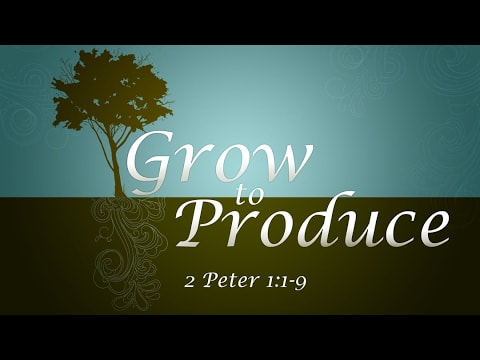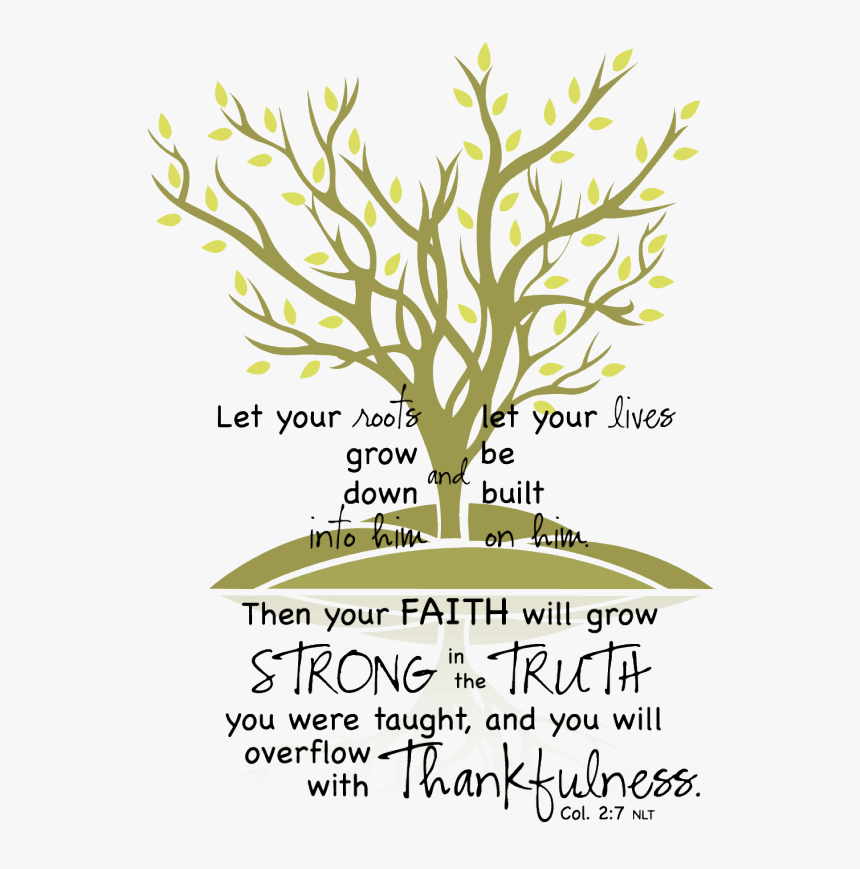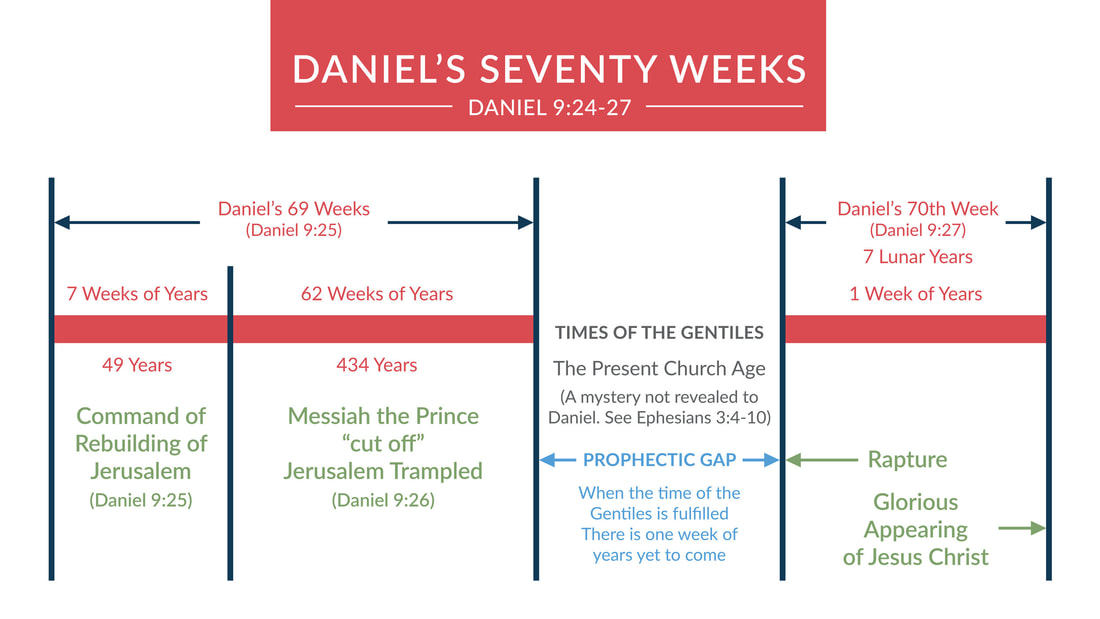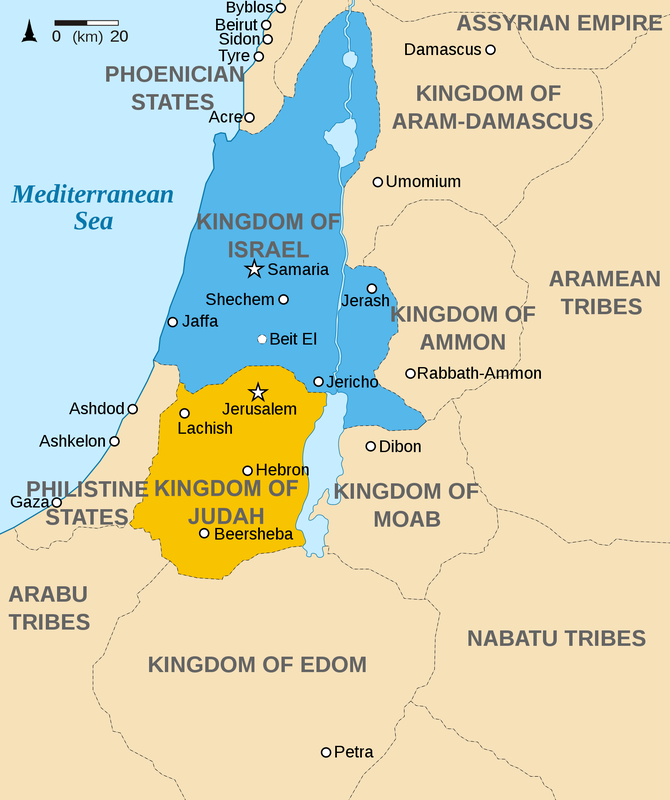journey.
Whenever we encounter a road under construction or traffic that halts our trek by half an hour, we may feel tempted to throw up our hands and say,
“Why now?
Why did this have to happen to me?’
Enter the Israelites,
who had endured hundreds of years of slavery in Egypt.
When God freed them, through his servant Moses and via 10 plagues (Exodus 7-11) and a splitting sea (Exodus 14),
they must have thought that they’d arrive in the land of their dreams,
the Promised Land, in no time.
But sure enough, they hit snags along the way.
The journey takes too long,
and they turn to other idols and gods to
speed up the process (Exodus 32).
The proverbial straw breaks the camel’s back when they
reach the Promised Land and send spies to scout the area.
When the spies realize that the fortified city
and its people within are intimidating.
All but Caleb and Joshua, two of the spies,
try to dissuade the Israelites
from going into the new land (Numbers 32).
Because of their obstinance and disobedience and forgetfulness of
God’s promises,
God delays their entry into the Promised Land by 40 years.
Aside from Caleb and Joshua, anyone over a certain age would not see the Promised Land, since their generation did not exercise a strong
faith in God’s provision.
Although the 40 years in the desert may serve as a cautionary tale of sorts, can we learn anything from the Israelites as they wandered for four decades?
Indeed.
We’ll dive into some of the many lessons from the 40 years in the desert.
God Provides in Our Darkest Moments In the desert, the Israelites had run low on provisions (Numbers 11:5).
It gets to the point where the Israelites pine
after the “good ole days” of their slavery in Egypt,
where they didn’t have to worry about starvation.
They get so hungry that they think
hundreds of years doing hard slave labor in Egypt
sounds like paradise.
God, seeing their need for food,
provides them with a substance known as manna.
A heavenly bread of sorts that means “what is it?”
He also gives them protein via quail
and provides these bread and birds from heaven daily
until they enter the Promised Land.
God understood that the desert was
a temporary limbo for the Israelites.
They wouldn’t stay there forever but would enter the Promised Land decades later.
Nevertheless, he meets their needs, nonetheless.
From this, we can learn that God meets us in limbo.
We might be waiting on a job or living from paycheck to paycheck,
but God provides for us in the desert and in the Promised Land.
He doesn’t leave or forsake us in our greatest hour of need.
God's Plan Never "Seems to Align" with Ours
Nor does his timeline.
The Israelites may have thought that everything would be smooth sailing since they left their former lives from Egypt.
No longer would they have to operate under cruel taskmasters, and they had a bright future ahead.
But they expected it all to happen
so fast.
So easily.
They didn’t realize that sometimes getting to the Promised Land
takes time.
That God may have wanted them to learn some lessons
along the way about trusting him,
and that he fights for them
when they are surrounded by a great number of enemies
on their way to the Promised Land
(Exodus 17).
We can learn that God’s timeline and plan
often veer far away
from how we expect a situation to play out
or an outcome to fall in our favor.
Nevertheless, God’s plans always are best,
and we have to trust in him.
Especially when we need to rely on his provisions,
like the Israelites in the desert.
God Doesn’t Keep Us in the Desert Forever
Forty years sounds like a long time.
To the Israelites who were in their teens,
they didn’t reach the Promised Land
until they had turned 50 or 60 years old.
But even though God’s timeline may not align with ours,
he doesn’t keep us in the desert forever.
Whether the “desert” we’re currently enduring is a trial or if we think of the “desert” as this world (a limbo until we reach the Promised Land of paradise) God doesn’t hold us in limbo forever.
We will reach the Promised Land since promised is in the title.
God doesn’t break covenants,
and he won’t keep us suspended in the desert for eternity.
Whether our trial lasts four years or 40,
we will make it to the Promised Land.
WHERE IT ALL BEGAN
Genesis 12:1–3
This is, of course, the seminal passage that describes God’s call of Abram and the basis for the Abrahamic Covenant. In this text we find three essential elements: land (v. 1: “…to the land that I will show you”), offspring (v. 2 “I will make you a great nation”), and blessing (vv. 2–3 “I will bless you… and you shall be a blessing”). As noted, the first element of this covenant is the land. Literal land. This is verified in the next text.
The Abrahamic Covenant is unconditional
and absolutely dependent upon God.
He is taking full responsibility for its fulfillment.
Genesis 15:18. In the previous verses of chapter 15 we observe God making a covenant with Himself to fulfill the covenant He made with Abram. Because of this distinction, we understand the Abrahamic Covenant is unconditional and absolutely dependent upon God. He is taking full responsibility for its fulfillment. Note verse 18 in which He tells Abram, “To your descendants I have given this land from the river of Egypt as far as the great river, the river Euphrates.” Without a doubt, the land is a literal land—a piece of real estate and not to be allegorized or spiritualized in any manner. As we fast forward hundreds of years (following Israel’s 400 years in Egypt and the ensuing Exodus), we observe Joshua as the leader of the Israelites and God’s very specific words to him as they are about to enter the Promised Land.
Joshua 1:3, 6–7. “Every place on which the sole of your foot treads, I have given it to you, just as I spoke to Moses… Be strong and courageous, for you shall give this people possession of the land-which I swore to their fathers to give them. Only be strong and very courageous…”
(NASB; Note: Numbers 33:50-34:34 describes the extent of the land and how it was to be apportioned).
The above texts give us our starting point and verify that God intended His Chosen People to have a land of their own to possess. While this is indisputable biblical truth, the question and controversy lies in their actual possessing (or not) of all the land God had indeed promised.
ISRAEL’S POSSESSION OF THE LAND
Joshua 11:23; 21:43–45. “So Joshua took the whole land, according to all that the Lᴏʀᴅ had spoken to Moses, and Joshua gave it for an inheritance to Israel according to their divisions by their tribes. Thus the land had rest from war… So the Lᴏʀᴅ gave Israel all the land which He had sworn to give to their fathers, and they possessed it and lived in it. And the Lᴏʀᴅ gave them rest on every side, according to all that He had sworn to their fathers, and no one of all their enemies stood before them; the Lᴏʀᴅ gave all their enemies into their hand. Not one of the good promises which the Lᴏʀᴅ had made to the house of Israel failed; all came to pass.”
By all indications, a literal reading of the text would lead us to believe and understand that Israel had taken full possession of the land that God had promised in the Abrahamic Covenant. However, there are other texts which tell us otherwise in order to answer our opening questions.
The following references are important to this discussion and need to be understood:
Joshua 13:1: “The Lᴏʀᴅ said to [Joshua], ‘You are old and advanced in years, and very much of the land remains to be possessed.’”
v. 13 “But the sons of Israel did not dispossess the Geshurites or the Maacathites.”
15:63; 16:10: “Now as for the Jebusites, the inhabitants of Jerusalem, the sons of Judah could not drive them out. . . but they did not drive out the Canaanites who lived in Gezer.”
17:12 “But the sons of Manasseh could not take possession of these cities, because the Canannites persisted in living in that land.”
Throughout these texts, it is also to be noted that on several occasions, it also reads that those Israel could not drive out “live among Israel until this day.”
GOD’S PROMISE NEVER FAILS
Did they really possess ALL the land? The simple answer is: No. But does not Scripture then contradict itself, and did God not really fulfill His promise to Israel?
While they took the land and lived in it,
they never fully “dispossessed” the enemies from the land.
1. It is important to point out that the Israelites did indeed take the land God had promised and that God gave them the land (Josh. 11:23; 21:43–45). To take the land and have it given to them is to be differentiated from fully possessing the land. So while they took the land and lived in it, they never fully “dispossessed” the enemies from the land. To the writing of the book of Joshua, the enemies persisted until that time at least.
2. The fact that Israel “possessed and lived in the land” does not negate the fact that they might possess still more of it.
3. At the very time Scripture records Israel’s possession of the land (Josh. 21), their enemies (living among them) posed no threat. They had been subdued by Israel even though they were not completely driven out.
4. It wasn’t until the time of Solomon (not even David) that Israel’s borders came close to the parameters that God described in His Word. Israel’s borders extended to the border of Egypt (1 Kings 4:21) but not the river of Egypt mentioned in Genesis 15:18.
There are other distinctions that must be considered that help us understand the dilemma and controversy of Israel’s possession of the land.
First, there is an additional text relating to the Abrahamic Covenant where God is once again speaking to Abraham. Genesis 17:7–8 reads, “I will establish My covenant between Me and you and your descendants after you throughout their generations for an everlasting covenant, to be God to you and to your descendants after you. I will give to you and to your descendants after you, the land of your sojournings, all the land of Canaan, for an everlasting possession; and I will be their God.” “Everlasting” is the emphasis here, and without a doubt, Israel has NOT been in possession of the land in perpetuity. Throughout history, the Israelites have been exiled, taken captive, booted out (the Diaspora), and even to this day, the full extent of the land is NOT theirs. They have never been in full possession of all the land.
So, what gives? What could God possibly have meant in His covenant with Abraham? Amos 9:11–15 gives us insight that helps unravel the controversy and lingering questions:
“In that day [the future Millennial Kingdom]… Behold, days are coming… I will restore the captivity of My people Israel… I will also plant them on their land, and they will not again be rooted out from their land which I have given them,” says the Lᴏʀᴅ your God.”
One day, at the end of the Tribulation, all of surviving Israel will “look on Me whom they have pierced.”
Israel’s history of rebellion, idolatry, unfaithfulness, and rejection of Jesus Christ as their true Messiah has kept them from fully realizing the Abrahamic Covenant and fully possessing the land. One day, at the end of the Tribulation, all of surviving Israel will “look on Me whom they have pierced” (Zech. 12:10). Israel’s repentance will be complete, and they will inhabit the future kingdom over which Christ will reign as their Messiah. Then and only then will Israel fully possess the land promised to them. God is faithful to His Word—to Israel and to us!
God’s Love for Israel
Hosea 11:1-12
Richard Halverson, former chaplain of the United States Senate, once wrote, “There is nothing you can do to make God love you more, nor is there anything you can do to make God love you less! His love is Unconditional, Impartial, Everlasting, Infinite, and Perfect.”
This description aptly expresses God’s love for Israel.
God appears in this chapter as a loving Father
grieving over Israel, His rebellious son.
Israel’s rebellious attitude was inexplicable in view of all that God had done for the nation. God birthed Israel; and through the centuries, He nourished, instructed, and protected the nation. But Israel proved to be an ungrateful son who insulted God by acts of immorality, idolatry, and indifference. Like any wayward son, Israel needed chastening.
In His sovereign love, God corrected the prodigal nation in order to restore it to a loving relationship with Himself.
God’s Call
God demonstrated His love for Israel from its inception as a nation. Hosea said, “When Israel was a child, then I loved him, and called my son out of Egypt” (v. 1). God is pictured as a tender, loving father who adopted Israel to be His son and entered into a covenant relationship with the nation.
His choice of Israel was an act of pure, sovereign grace,
not due to any merit within the nation (Dt. 7:6–8). He displayed His love by delivering Israel from 400 years of Egyptian bondage.
The prophets repeatedly used this deliverance as an illustration of God’s power on behalf of His people.
The phrase called my son out of Egypt also is applied typologically to Jesus Christ in Matthew 2:15. Israel, the covenant people, is the type; and Jesus the Messiah is the antitype. Both Israel and Jesus went to Egypt for protection-Israel because of a severe famine in Canaan during the days of Joseph; Jesus because of Herod’s threat to kill all children two years and under in Jerusalem and Bethlehem.
Hosea’s statement is a historical reference to Israel’s physical redemption from Egypt. Matthew’s statement refers to Jesus the Redeemer who provides spiritual redemption from the bondage of sin and eternal death.
The nation responded to God’s love like a wayward son. To correct Israel’s waywardness, God sent prophet after prophet who pleaded with the nation to repent and return to the Lord.
Hosea said, “As they called them [the prophets sent by God], so they [Israel] went from them; they sacrificed unto Baalim, and burned incense to carved images” (v. 2). The more God called, the more Israel rejected Him and rebelled against His love. Turning a deaf ear to God’s prophets, the nation chose to practice idolatry instead.
God’s Care
Like a loving father,
God had cared tenderly for the nation
during its journey through the wilderness:
I taught Ephraim also to go, taking them by their arms, but they knew not that I healed them. I drew them with cords of a man, with bands of love; and I was to them as they that take off the yoke on their jaws, and I laid food before them (vv. 3–4).
This statement of guiding and guarding Israel through the wilderness is tender and touching. The Lord took Israel by the arm to guide the nation over difficult obstacles, so it would not stumble and get hurt.
When Israel fell during times of testing,
God was there to heal its wounds.
God’s love and compassion for Israel is like that of a herdsman who cares for his heifer.
The herdsman repositions the yoke’s strap under the ox’s jaw, enabling the animal to eat its food with ease. With a handful of grain, the herdsman bends down and tenderly feeds his animal. God did not lead Israel like a dumb animal, with ropes and halters. He guided Israel with cords of tenderness, kindness, and love; compassionately and continually, he eased the nation’s strain and burden. For 40 long years, God graciously provided food and water for Israel during its wilderness wanderings.
Israel was more than willing to enjoy God’s generous gifts and gracious love. But like an ungrateful son, Israel took God for granted, disobeying His commands and disregarding His will.
God’s Chastening
Although God is long-suffering, His patience has limits.
As any good father should,
He had to correct wayward Israel
for its ingratitude and rebellion. Hosea said, “He (Israel) shall not return into the land of Egypt, but the Assyrian shall be his king, because they refused to return” (v. 5). Egypt is a symbol for the new type of exile Israel would face in Assyria.
With the collapse and capture of Israel’s political leadership, the king of Assyria would control the nation’s government. Thus Israel would have no king (cf. 10:3, 7, 15). Because the Israelites refused to repent, their bondage at the hands of Assyria would be far more severe and last longer than their time of slavery in Egypt.
Judgment hovered over Israel like the legendary sword of Damocles
and, in God’s time, would strike the nation:
And the sword shall abide on his cities, and shall consume his branches [i.e., villages], and devour them [i.e., demolish the bars and bolts of their gates], because of their own counsels (v. 6).
The sword would whirl around as it swept the land, devouring Israel’s cities, villages, and defenses.
Destruction would come on Israel
because it went to Canaanite deities,
such as Baal,
for deliverance from Assyria,
rather than going to the Lord.
Another reason for Israel’s destruction was its continual backsliding. God said, “And my people are bent [hung up on] to backsliding from me; though they [God’s prophets] called them to the Most High, none at all would exalt him” (v. 7). No one in Israel heeded the prophet’s message because sin had lured the nation into such deep moral apathy that its ears were dull of hearing.
God’s Compassion
The Law of Moses required that every rebellious son who would not obey his father or heed his reprimand be put to death (Dt. 21:18–21). Israel was such a son. He flaunted God’s love, took for granted God’s mercy and compassion, ignored the many warnings of judgment, and deserved to be annihilated. But
God’s great love for His covenant people
would not allow Him to abandon Israel.
God expresses His lament and deep love for Israel in four rhetorical questions:
How shall I give thee up, Ephraim? How shall I deliver [surrender] thee, Israel? How shall I make thee as Admah? How shall I set thee as Zeboiim? Mine heart is turned within me; my compassions are kindled together (v. 8).
Admah and Zeboiim were two cities that were annihilated with Sodom and Gomorrah when God rained fire and brimstone on them (Dt. 29:22–23). Though Israel deserved the judgment of Admah and Zeboiim,
God’s heart revolted within Him at such a thought.
Instead, He turned from His fierce anger
to show Israel mercy and compassion.
God has an eternal relationship with Israel.
He chose her, called her, cared for her, and chastens her when necessary; but it is not His divine purpose to destroy her:
Thus saith the LORD, If heaven above can be measured, and the foundations of the earth searched out beneath, I will also cast off all the seed of Israel for all that they have done, saith the LORD (Jer. 31:37).
God will never annihilate Israel because of the promises He made in the Abrahamic Covenant.
Although Israel will be severely punished for her sin, God always tempers His justice with divine compassion and will not obliterate the nation: “I will not execute the fierceness of mine anger, I will not return to destroy Ephraim; for I am God, and not man, the Holy One in the midst of thee, and I will not enter into the city” (v. 9). Nor will God return to destroy Israel as He did during the Assyrian invasion. On the contrary, He tempers His chastening with compassion and covenant love,
in hopes that His punishment
will result in Israel’s restoration and redemption.
Keep in mind that God’s judgment on Israel, His son, is both punitive and remedial.
Everything that befell Israel was intended to chasten the prodigal nation back to God.
No man can question God’s actions because the Lord is “God, and not man, the Holy One in the midst of [Israel].”
God always does what is just and right,
whether we understand it or not.
In the future, the people of Israel will return swiftly to their land from all over the world to experience God’s blessing in the Millennial Kingdom.
Abruptly, the subject switches to a future time when God will summon Israel back to the land for the Kingdom blessing of the Abrahamic Covenant.
Hosea used a number of metaphors to express Israel’s return: “They shall walk after the LORD; he shall roar like a lion; when he shall roar, then the children shall tremble from the west” (v. 10). In the past, God destroyed Israel like a roaring lion (5:14); in the future, He will call Israel back to its land with His roar.
During the return, “they shall tremble like a bird out of Egypt, and like a dove out of the land of Assyria, and I will place them in their houses, saith the LORD” (v. 11). No longer will Israel be like a “silly dove” (7:11), flittering around in confusion, but will be like a dove flying home, trembling with excitement, as it returns in haste to its nest. In the future, the people of Israel will return swiftly to their land from all over the world to experience God’s blessing in the Millennial Kingdom.
This promise is affirmed by the words, “saith the LORD.”
Chapter 11 ends with God representing Himself as a man enveloped by Israel’s sin. “Ephraim encompasseth me about with lies, and the house of Israel with deceit,
but Judah yet ruleth with God,
and is faithful with the saints” (v. 12).
Hosea had exposed Israel’s unfaithfulness and hypocrisy through lies and deceit. The nation had pretended to worship Jehovah while practicing idolatry. Although the King James Version contrasts the faithlessness and insincerity of Israel to the faithfulness of Judah, Jewish Scriptures render the last verse differently. They show Judah as defiant also. The Hebrew word rud, translated “ruleth” (v. 12) means “to wander restlessly” or “to be unruly” against God. Judah, despite all her privileges (Temple, priesthood, covenant promises), was like a restless, unruly animal that cast off all restraints and wandered away from its master--just like Israel. Most commentators accept this interpretation, which seems to be the teaching of verse 12.
On the other hand, God faithfully keeps His covenant promises of redemption and restoration to “the saints” in both Israel and Judah. Likewise, God will bring redemption and restoration to a generation of Jewish people who will come to Him in repentance. In the Kingdom Age, Israel’s sorrow will turn to joy as the once-wayward son experiences spiritual renewal through God’s loving compassion.
Water in the stone
Manna on the ground
No matter where I go
'I don't need to worry now that I know
Everything I need You've got
There's honey in the rock
'Praying for a miracle
Thirsty for the living well
Only You can satisfy
Sweetness at the mercy seat
Now I've tasted, it's not hard to see
Only You can satisfy
There's honey in the rock
There's honey in the rock
There's honey in the rock
There's honey in the rock (yeah)
Freedom where the Spirit is
Bounty in the wilderness
You will always satisfy (yeah)
There's honey in the rock
Water in the stone
Manna on the ground
No matter where I go
I don't need to worry now that I know
Everything I need You've got
There's honey in the rock
Purpose in Your plan
Power in the blood
Healing in Your hands
Started flowing when You said it is done
Everything You did's enough
I keep looking, I keep finding
You keep giving, keep providing
I have all that I need
You are all that I need
I keep praying, You keep moving
I keep praising, You keep proving
I have all that I need
You are all that I need
I keep looking, I keep finding
You keep giving, keep providing
I have all that I need
You are all that I need
Oh, how sweet, how sweet it is
To trust in You Jesus
https://youtu.be/DxWp0q6eEOY

















 RSS Feed
RSS Feed





















































